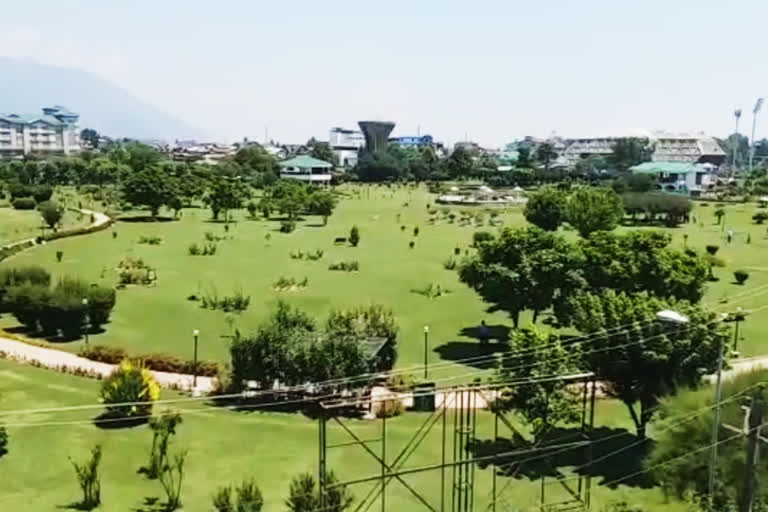Srinagar: Kashmir Valley is world-renowned for its scenic beauty and pristine environment. But Kashmir's fragile environment is at greater risk due to rising air pollution and the non-implementation of environmental protection laws. The rising pollution also threatens the tourism sector as it includes fragile snow-covered hills and eco-sensitive meadows and water bodies.
Critics say that air pollution is reported due to burgeoning cement factories, brick kilns and transportation. Environmental activist Dr Sheikh Ghulam Rasool points out that besides the above factors, the government has planned rapid industrialization and installation of power projects."The fragile environment in Kashmir is under great risk," Dr Rasool told ETV Bharat.
Also read: J-K LG Manoj Sinha gets first dose of COVID-19 vaccine
Joint research conducted by a team of scientists from Pune-based Indian Institute of Tropical Meteorology (IITM) and the University of Kashmir in 2018 in Srinagar found that the air quality deteriorates significantly during the winters in the city.
"Long-term monitoring of fine particulate matter, PM2.5, responsible for deteriorating human health, has been done and the results indicate that air quality of the capital city Srinagar deteriorates significantly during the winter," the study, conducted between May 2013 and April 2014 said. The report was released recently.
Also read: Pak takes Nepal hawala route to pump in funds for J&K terror groups
It found that PM 2.5 levels in winter touched 348 micrograms per cubic metre - five times higher than the national permissible limit of 60 micrograms per cubic metre, mainly due to the use of coal for domestic purpose.
"The level of PM2.5 touches a peak value of 348 micrograms per cubic metre against the Indian permissible limit of 60 micrograms per cubic metre. The emissions due to domestic coal usage are found to be 1246.4 tons/year, which accounts for 84 per cent of the total annual emissions," it said.
Environmental experts say that due to rising pollution Srinagar and other tourist spots will lose its significance attraction and the level of oxygen will deteriorate." Air pollution is haunting us and time is not far when we will be gasping for oxygen," Professor Syed Unto told ETV Bharat.
Lawyer Nadeem Qadri says that Jammu and Kashmir has strict environmental protection laws, but the government itself violates them."The implementation of the environmental protection laws is very meagre that it is mostly through the intervention of the High Court that environment pollution is kept under check," Qadri said.
Also read: US welcomes steps taken to return J-K to full economic and political normalcy



